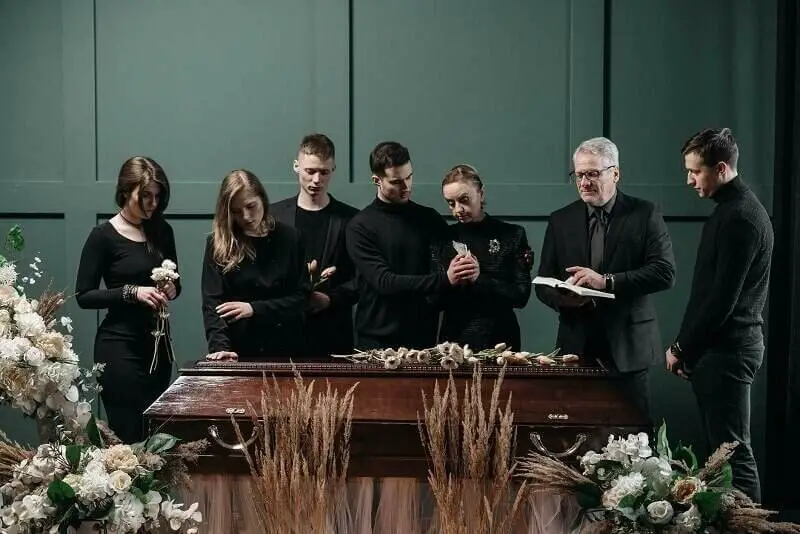The $500 Million Inheritance That Backfired: A Story of Betrayal and Justice
When greed meets reality, sometimes the universe has the last laugh
In the humid embrace of Atlanta, Georgia, where ancient oak trees line suburban streets and Southern charm masks complex human dramas, Jazelle Johnson’s life was about to take a turn that would challenge everything she thought she knew about love, loyalty, and the true cost of greed.
At 42, Jazelle had already weathered more storms than most people face in a lifetime. As a successful sales manager for a prominent tech company, she had built a reputation for her sharp business acumen and unwavering professionalism. Her corner office overlooked the bustling Atlanta skyline, a testament to years of hard work and dedication. But success in the boardroom couldn’t shield her from the personal betrayals that were about to unfold in her own home.
The Foundation of Deception
The morning that would change everything started like any other. The Georgia sun filtered through the windows of the sprawling suburban home she shared with her husband Ryan, casting long shadows across the hardwood floors. But when Ryan walked into their living room with a stack of papers and a smile that didn’t reach his eyes, Jazelle knew their marriage was about to become another casualty of human greed.
“I don’t need you anymore,” Ryan announced with the casual indifference one might use to discuss the weather. The words hung in the air like a challenge, each syllable designed to inflict maximum damage.
But it was his next statement that truly revealed the depth of his betrayal: “Dad’s bank account has $500 million, Jazelle. I’m set for life. You were just the ATM until I got it.”
The revelation hit Jazelle with the force of a freight train. This wasn’t just about divorce—this was about the systematic dismantling of everything she had believed about her marriage, her husband, and the man she thought she had chosen to spend her life with.
Standing there in the home they had shared, surrounded by the accumulated memories of what she had believed was a genuine relationship, Jazelle felt the ground shift beneath her feet. Ryan had married her not for love, not for companionship, but as a financial convenience while he waited for his father’s death to make him wealthy.
The Backstory: Love, Loss, and New Beginnings
To understand the full impact of Ryan’s betrayal, it’s essential to know how Jazelle had arrived at this moment. Her journey to this devastating revelation began years earlier, rooted in genuine tragedy and the kind of loss that reshapes a person’s entire worldview.
Jazelle’s first marriage had been built on authentic love and shared dreams. She and her first husband weren’t wealthy, but they had something far more valuable—a partnership based on mutual respect and genuine affection. They lived modestly but contentedly, building a life together one small decision at a time.
Then came the phone call that shattered everything. A car accident, sudden and final, took her husband’s life and left Jazelle a widow at a time when she should have been planning their future together. The life insurance payout and severance package totaled $500,000—money that felt tainted with grief and loss.
Her former in-laws, understanding people in their late seventies who had watched their son love this woman, urged her to keep the money. “You’re young, Jazelle,” they said with the wisdom that comes from a lifetime of experience. “Use it to start over.”
But starting over isn’t just about having the financial means—it’s about finding the emotional strength to believe in new beginnings. Jazelle wasn’t just broke; she was broken, carrying the weight of loss and the challenge of rebuilding a life she had never expected to live alone.
Enter Ryan Carter: The Master Manipulator
Into this landscape of grief and gradual healing walked Ryan Carter. As a sales representative for a partner company, Ryan possessed the kind of charisma that could light up a room and the silver tongue that made people want to trust him. He had perfected the art of reading people, understanding their vulnerabilities, and positioning himself as exactly what they needed.
For Jazelle, still raw from loss and struggling to find joy in daily life, Ryan appeared to be a gift. He made her laugh for the first time in months, bringing lightness to days that had felt impossibly heavy. Their courtship felt organic, built on shared professional interests and what seemed like genuine chemistry.
A year later, they were married. It was only after the wedding, after the vows had been exchanged and the legal bonds had been formed, that Ryan revealed the first hint of the deception that had been lurking beneath the surface of their entire relationship.
“Oh, by the way, I’m living with my dad,” he mentioned casually, as if this were a minor detail rather than a fundamental aspect of their new life together. “He’s been sick.”
The House That Held Secrets
Walking up to Ryan’s father’s house in suburban Atlanta was like entering a different world entirely. The property was substantial without being ostentatious—a wide lawn shaded by ancient oak trees, the kind of home that spoke of stability and long-term planning rather than flashy wealth.
Inside, the house carried the comforting scent of cedar and old books, the accumulated aroma of a life well-lived. Ryan’s father waited in his recliner, his face carrying the kind of kindness that comes from years of genuine interaction with the world, though fatigue had clearly taken its toll.
The connection between Jazelle and her father-in-law was immediate and genuine. Unlike the calculated charm that Ryan deployed, his father’s interest in her seemed authentic. They discussed her work in the tech industry, diving into conversations about market trends and business strategy with the kind of intellectual excitement that had been missing from her life.
When Jazelle and Ryan moved into the family home, the arrangement seemed practical and caring. Ryan had quit his job to become his father’s full-time caregiver, a decision that initially appeared selfless and devoted. Jazelle would return from her demanding days at the office to find Ryan cooking dinner, seeming to have found his calling in domestic care.
The Cracks Begin to Show
But facades, no matter how carefully constructed, eventually crumble under the weight of reality. The caring son routine began to show signs of wear as Ryan’s true priorities became increasingly clear.
Jazelle started coming home to find Ryan lounging on the couch while dishes accumulated in the sink and household responsibilities went unattended. The man who had initially seemed so devoted to his father’s care was revealing himself to be someone more interested in the appearance of caregiving than its actual execution.
The financial violations began subtly but escalated quickly. Jazelle first noticed small discrepancies in her account—amounts that could be explained away as miscommunications or honest mistakes. But these minor infractions were building toward something much more significant.
One afternoon, Jazelle arrived home to find a pristine vintage Mustang sitting in the driveway, its chrome gleaming in the Georgia sun. Thirty thousand dollars of her carefully managed inheritance—money that represented the life insurance from her first husband’s death—had been spent without her knowledge or consent.
When confronted, Ryan’s response revealed the depth of his entitlement and the extent of his long-term planning. He shrugged off the theft with casual indifference. “Dad’s loaded,” he said, as if this justified his actions. “Once he’s gone, we’ll be set.”
The callousness of the statement—counting down to his father’s death as a financial windfall—made Jazelle physically ill. This wasn’t just about stealing her money; it was about Ryan’s willingness to view his father’s mortality as a business opportunity.
The Growing Bond with a Dying Man
While Ryan’s true character was revealing itself in increasingly disturbing ways, Jazelle found herself developing a genuine relationship with her father-in-law. The man had lived a life of substance, and his study served as a testament to his values—walls lined with photographs of community centers and parks he had helped build, evidence of a life spent in service to others.
“Jazelle, you’re too good for this,” he would tell her during their private conversations, his voice carrying the weight of a man who had watched his son become someone he didn’t recognize. “I’m sorry Ryan’s putting you through this.”
These conversations became a refuge for Jazelle, a place where she could experience the kind of authentic human connection that her marriage clearly lacked. Her father-in-law saw through Ryan’s performance and recognized the toll it was taking on the woman who had unknowingly become part of his son’s elaborate financial scheme.
The Truth About the Inheritance
It was during one of these intimate conversations that Jazelle’s father-in-law asked for her help with his end-of-life planning. What should have been a straightforward discussion about wills and final wishes became a revelation that would ultimately determine the fate of Ryan’s grand plans.
The older man explained his situation with the kind of honest vulnerability that Ryan had never shown. His proudest achievement—a major community center project—had failed catastrophically. The financial collapse had forced him to use $500 million of his savings as collateral for a massive loan. If the debt couldn’t be repaid, the bank would claim the entire amount.
“If I don’t make it,” he said with the quiet resignation of a man facing his mortality, “the collateral’s gone. Ryan needs to know that.”
But Ryan didn’t know, because Ryan had never bothered to have real conversations with his father about anything beyond surface-level pleasantries. His entire relationship with the man was based on assumptions about wealth and inheritance rather than actual understanding or connection.
The Final Betrayal
The day Jazelle’s father-in-law passed away marked the end of one of the few genuine relationships in her life at that time. The world had lost a man who had dedicated his life to building things that would benefit his community, and Jazelle had lost someone who had seen her worth when her own husband couldn’t.
She was still processing this loss when Ryan walked into their home, his face illuminated with the kind of anticipation typically reserved for lottery winners. He carried a stack of divorce papers like a trophy, ready to claim his prize.
“Jazelle, we need to talk,” he announced, his tone carrying none of the gravity appropriate for the moment. “Let’s get divorced.”
The timing was breathtaking in its cruelty. His father had just died, and Ryan’s primary concern was ensuring that he could claim his inheritance without having to share it with the woman who had supported him financially throughout their marriage.
“I checked Dad’s account,” he continued, his voice rising with excitement. “$500 million, Jazelle. I’m set for life. I don’t need you anymore. You were just the ATM while I waited for this.”
The words were designed to wound, to make clear that their entire marriage had been a transaction rather than a relationship. Ryan had waited for his father to die, had stolen money from his wife’s inheritance from her deceased first husband, and now planned to discard her with the same casual indifference he might show toward any other used resource.
The Moment of Truth
Standing in that living room, faced with the complete destruction of what she had believed about her marriage, Jazelle felt something shift inside her. Perhaps it was the memory of her father-in-law’s steady voice, perhaps it was her own inner strength finally asserting itself, but instead of breaking down, she found her center.
“Give me the papers,” she said, her voice steady despite the emotional hurricane swirling inside her.
She signed them immediately, each signature a declaration of independence from a relationship built on deception and exploitation.
“File them yourself,” she continued, gathering the remnants of her dignity around her like armor. “Send my stuff when you’re done.”
Walking out of that house—past the manicured lawn and the life she had thought they were building together—Jazelle felt a strange mixture of rage and relief. Ryan believed he had won, that he had successfully executed a years-long con that would set him up for life. But he was about to learn that reality doesn’t always align with fantasy.
The Reckoning
A few days after the divorce papers were filed, Jazelle’s phone rang. Ryan’s voice on the other end was unrecognizable—panic had replaced the smug confidence that had characterized their final conversation.
“Jazelle, what the hell did you do?” he shouted, his words tumbling over each other in desperation. “I went to the bank, and they said Dad’s account is locked. There’s $500 million in there, Jazelle. What’s happening?”
The conversation that followed was a masterclass in the difference between knowledge and assumption. Jazelle calmly explained what Ryan had never bothered to learn about his own father’s financial situation.
“You didn’t know, did you?” she said, her voice carrying the quiet authority of someone who had actually paid attention to the man Ryan had only seen as a meal ticket. “That $500 million—it’s collateral. You can’t touch it.”
She walked him through the reality of his father’s failed community center project, the massive loan, the debt that had consumed the fortune Ryan had been counting on. Every word was a nail in the coffin of his elaborate fantasy.
“It’s gone, Ryan,” she concluded.
“You’re saying there’s nothing?” His voice had dropped to a whisper, the weight of reality finally settling in.
“There’s another account, Ryan. $75,000. That’s your inheritance.”
The silence that followed was deafening. Years of planning, years of exploitation and betrayal, years of treating people as resources rather than human beings—all for $75,000.
When Ryan began begging for help, asking Jazelle to pretend the divorce had never happened, her response was final: “You made your choices, Ryan. Figure it out.”
The Aftermath: Justice and New Beginnings
The consequences of Ryan’s actions rippled outward like waves from a stone thrown into still water. The man who had been so certain of his upcoming wealth found himself facing a reality he had never prepared for.
Friends reported that Ryan had attempted to return to sales, but the psychological impact of losing his fantasy fortune had shattered his confidence and his ability to function effectively in a professional environment. The silver tongue that had once served him so well in manipulating others now stammered when faced with the necessity of honest work.
He eventually found employment as a part-time delivery driver, a job that required him to work for every dollar rather than simply wait for windfalls that would never come.
Meanwhile, Jazelle embarked on the process of rebuilding her life on her own terms. She found a cozy condominium in Midtown Atlanta with a balcony overlooking the city skyline—a space that was entirely hers, filled with her own choices and dreams rather than the compromises and deceptions that had characterized her marriage.
Ryan eventually sent her half of the actual inheritance—$37,500 from the $75,000 total. Jazelle deposited it in her savings account not as spending money, but as a memorial to her father-in-law’s spirit and a reminder of the importance of seeing people clearly.
Lessons in Human Nature and Justice
This story serves as a powerful reminder of several fundamental truths about human nature and the consequences of our choices.
The Danger of Treating People as Resources: Ryan’s fundamental error was viewing everyone in his life—his wife, his father, even himself—as resources to be exploited rather than human beings deserving of respect and genuine connection. This transactional approach to relationships ultimately left him isolated and unprepared for real life.
The Power of Patient Observation: While Ryan was busy constructing elaborate fantasies about his future wealth, Jazelle took the time to actually know her father-in-law as a person. This genuine connection not only enriched her life but also provided her with the knowledge that would ultimately protect her from Ryan’s schemes.
The Importance of Character Over Circumstances: Jazelle’s father-in-law, facing financial ruin and death, maintained his dignity and concern for others. Ryan, believing himself to be on the verge of great wealth, revealed himself to be petty, cruel, and shortsighted.
The Ultimate Futility of Greed: Ryan’s greed blinded him to reality. He was so focused on what he believed he would gain that he never bothered to understand the actual situation. His assumptions about his father’s wealth were based on wishful thinking rather than facts.
The Broader Implications
This story resonates because it touches on themes that are universal in human experience. Most people have encountered individuals who seemed to view relationships primarily through the lens of personal benefit. Many have witnessed the devastating effects of greed on families and marriages.
The story also highlights the importance of financial literacy and honest communication within families. Ryan’s father had made the mistake of not clearly explaining his financial situation to his son, perhaps hoping to spare him worry or perhaps not recognizing the extent of Ryan’s mercenary motivations.
For readers facing similar situations—whether dealing with manipulative partners, complex family financial situations, or the challenge of rebuilding after betrayal—Jazelle’s story offers hope. Her ability to maintain her dignity, make clear-headed decisions under pressure, and ultimately build a better life demonstrates that it’s possible to emerge stronger from even the most devastating betrayals.
The Final Word
Today, Jazelle Johnson continues her successful career in Atlanta’s tech industry. She returns each evening to a home that reflects her own values and aspirations rather than serving as a stage for someone else’s deceptions. She’s not the grieving widow lost in sorrow or the exploited wife trapped in a lie. She’s a woman who learned to see clearly, make hard choices, and build something authentic from the ashes of betrayal.
Her story serves as both a warning about the destructive power of greed and a testament to the resilience of the human spirit. In a world where people are often treated as means to an end, Jazelle chose to value genuine connection over financial security, truth over comfortable illusion, and self-respect over the false peace of ignorance.
The $500 million that Ryan thought would set him free ultimately became the chain that bound him to a reality he was unprepared to face. Meanwhile, the woman he had dismissed as merely an “ATM” found her way to a freedom more valuable than any inheritance: the freedom that comes from knowing your own worth and refusing to accept anything less than genuine respect.
In the end, the universe didn’t just deliver justice—it delivered a lesson in the true meaning of wealth. Sometimes the richest inheritance isn’t money at all, but the wisdom to recognize authentic human connection and the courage to demand it in our lives.
This story reminds us that while money may provide security and comfort, it cannot replace the fundamental human need for genuine relationships built on mutual respect and authentic care. In a world increasingly focused on financial success, Jazelle’s journey back to self-worth offers a powerful alternative narrative about what it truly means to be rich.

Emily Johnson is a critically acclaimed essayist and novelist known for her thought-provoking works centered on feminism, women’s rights, and modern relationships. Born and raised in Portland, Oregon, Emily grew up with a deep love of books, often spending her afternoons at her local library. She went on to study literature and gender studies at UCLA, where she became deeply involved in activism and began publishing essays in campus journals. Her debut essay collection, Voices Unbound, struck a chord with readers nationwide for its fearless exploration of gender dynamics, identity, and the challenges faced by women in contemporary society. Emily later transitioned into fiction, writing novels that balance compelling storytelling with social commentary. Her protagonists are often strong, multidimensional women navigating love, ambition, and the struggles of everyday life, making her a favorite among readers who crave authentic, relatable narratives. Critics praise her ability to merge personal intimacy with universal themes. Off the page, Emily is an advocate for women in publishing, leading workshops that encourage young female writers to embrace their voices. She lives in Seattle with her partner and two rescue cats, where she continues to write, teach, and inspire a new generation of storytellers.










I’ve been surfing online more than 3 hours today, yet I never found any interesting article like yours. It’s pretty worth enough for me. Personally, if all webmasters and bloggers made good content as you did, the web will be much more useful than ever before.